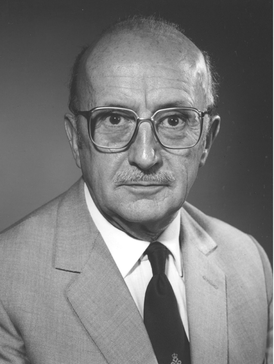Michael Elliott (chemist) facts for kids
Quick facts for kids
Michael Elliott
|
|
|---|---|
 |
|
| Born | 30 September 1924 |
| Died | 17 October 2007 (aged 83) |
| Alma mater | University of Southampton |
Michael Elliott (born September 30, 1924 – died October 17, 2007) was a brilliant British chemist. He was a scientist who studied chemicals. He is famous for inventing special bug-killing chemicals called pyrethroids. These chemicals have helped protect people from diseases like malaria. He worked at a famous research center called Rothamsted Experimental Station.
Contents
Michael Elliott: The Bug Fighter
Early Life and Learning
Michael Elliott went to The Skinners' School in Tunbridge Wells. He then studied science at the University of Southampton. There, he earned his Bachelor of Science and Doctor of Philosophy degrees. This means he studied chemicals and science for many years.
Fighting Bugs with Science
Michael Elliott led a team of scientists. They invented important pyrethroid insecticides. These are chemicals that kill insects. Some of these chemicals include bioresmethrin, permethrin, cypermethrin, and deltamethrin.
One of the biggest impacts of his work was on fighting malaria. Malaria is a serious disease spread by mosquitoes. In 2009, it was found that mosquito nets treated with these pyrethroid chemicals greatly reduced the number of deaths from malaria. This shows how his science helped save many lives around the world.
Awards and Recognition
Michael Elliott received many important awards for his work.
- In 1979, he was chosen as a Fellow of the Royal Society (FRS). This is a very high honor for scientists in the United Kingdom.
- In 1982, he was made a Commander of the Order of the British Empire (CBE). This award is given by the British monarch for great achievements.
- In 1989, he won the Wolf Prize in Agriculture. This is an international award given to people who have made big improvements in farming and food.
 | Bessie Coleman |
 | Spann Watson |
 | Jill E. Brown |
 | Sherman W. White |

